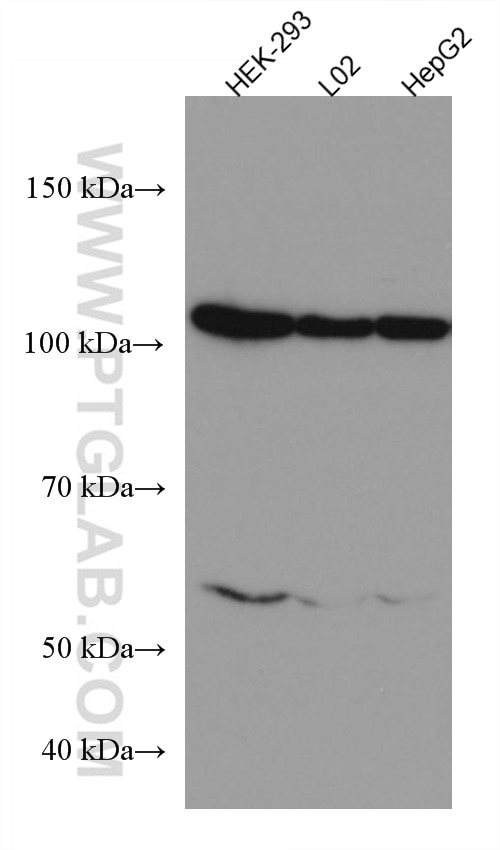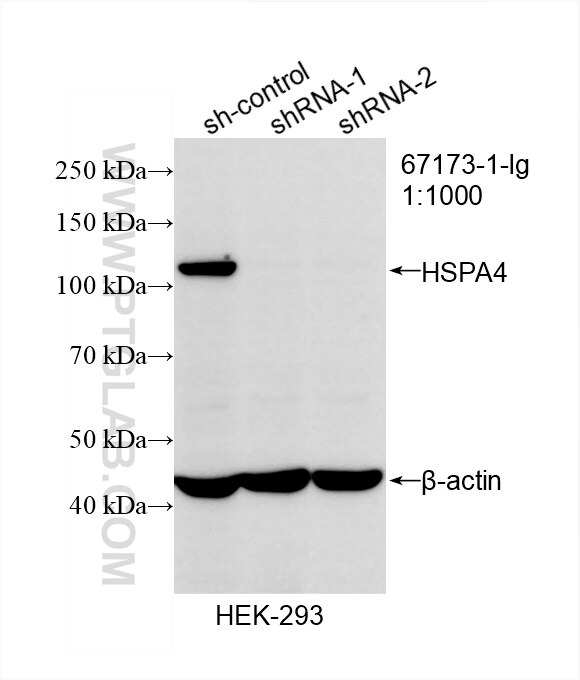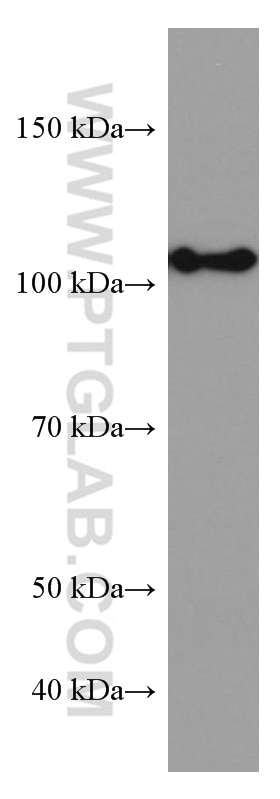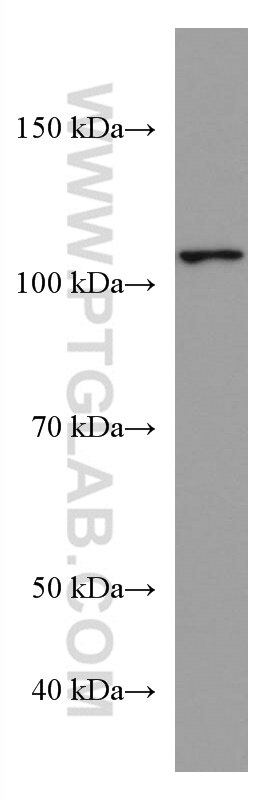- Featured Product
- KD/KO Validated
HSPA4 Monoklonaler Antikörper
HSPA4 Monoklonal Antikörper für WB, ELISA
Wirt / Isotyp
Maus / IgM
Getestete Reaktivität
Hausschwein, human
Anwendung
WB, ELISA
Konjugation
Unkonjugiert
CloneNo.
2F2C12
Kat-Nr. : 67173-1-Ig
Synonyme
Geprüfte Anwendungen
| Erfolgreiche Detektion in WB | HEK-293-Zellen, HepG2-Zellen, Jurkat-Zellen, L02-Zellen, Hausschwein-Hirngewebe |
Empfohlene Verdünnung
| Anwendung | Verdünnung |
|---|---|
| Western Blot (WB) | WB : 1:1000-1:4000 |
| It is recommended that this reagent should be titrated in each testing system to obtain optimal results. | |
| Sample-dependent, check data in validation data gallery | |
Produktinformation
67173-1-Ig bindet in WB, ELISA HSPA4 und zeigt Reaktivität mit Hausschwein, human
| Getestete Reaktivität | Hausschwein, human |
| Wirt / Isotyp | Maus / IgM |
| Klonalität | Monoklonal |
| Typ | Antikörper |
| Immunogen | HSPA4 fusion protein Ag16624 |
| Vollständiger Name | heat shock 70kDa protein 4 |
| Berechnetes Molekulargewicht | 840 aa, 94 kDa |
| Beobachtetes Molekulargewicht | 110 kDa |
| GenBank-Zugangsnummer | BC110861 |
| Gene symbol | HSPA4 |
| Gene ID (NCBI) | 3308 |
| Konjugation | Unkonjugiert |
| Form | Liquid |
| Reinigungsmethode | Caprylsäure/Ammoniumsulfat-Präzipitation |
| Lagerungspuffer | PBS with 0.02% sodium azide and 50% glycerol |
| Lagerungsbedingungen | Bei -20°C lagern. Nach dem Versand ein Jahr lang stabil Aliquotieren ist bei -20oC Lagerung nicht notwendig. 20ul Größen enthalten 0,1% BSA. |
Hintergrundinformationen
HSPA4 (also known as Apg-2, HSP70RY) is a 110 kDa cytosolic protein, a member of the heat-shock protein 110 (Hsp 110) subfamily of Hsp70 proteins which are highly conserved chaperons implicated in protein folding, protein refolding, protein transport, and protein targeting. HSPA4 is ubiquitously expressed and its expression is not heat inducible. Overexpression of HSPA4 has been reported in some leukemia and solid tumors.
Protokolle
| PRODUKTSPEZIFISCHE PROTOKOLLE | |
|---|---|
| WB protocol for HSPA4 antibody 67173-1-Ig | Protokoll herunterladen |
| STANDARD-PROTOKOLLE | |
|---|---|
| Klicken Sie hier, um unsere Standardprotokolle anzuzeigen |





